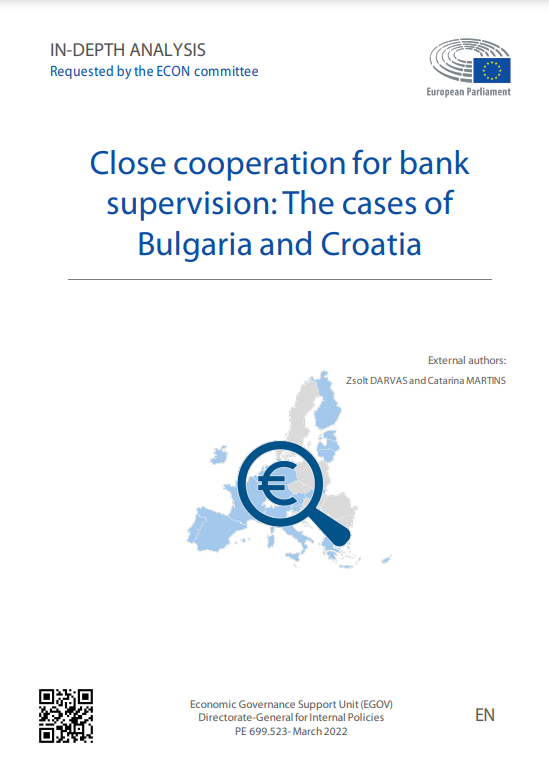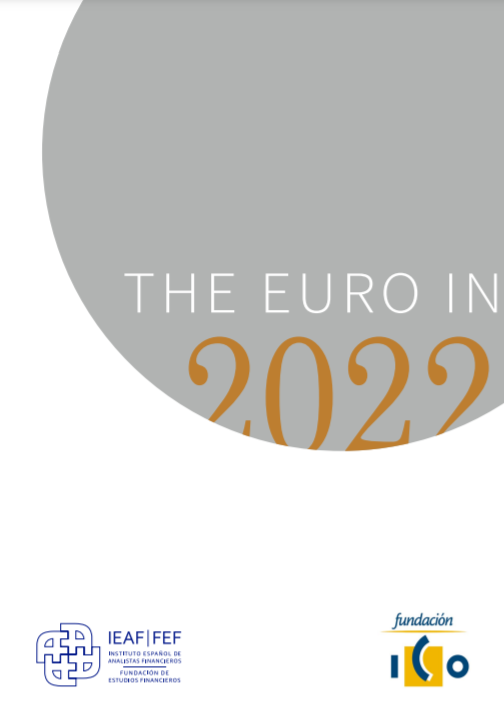Parliamentary Testimony
After the crisis: what new lessons for euro adoption?
Key learning for euro adoption lies within the experience of southern euro member states and the macroeconomic performance of euro ‘ins’ and ‘outs’ among newer member states. Zsolt Darvas discusses promising signs for eventual euro adoption in Croatia and the unsuitability of the Maastricht fiscal criteria for joining the euro, in his speech delivered at an event organised in the Croatian Parliament on 15 November 2017
The focus for euro adoption should centre upon the prevention of any build-up of macroeconomic and financial vulnerabilities, like large foreign indebtedness and bank balance sheet fragility, and the ability to address such imbalances if they happen to occur. Macroprudential policy and sustainable fiscal policy should have key roles in prevention, while flexible labour and product markets help the adjustment if such imbalances occur.
Another important point is the maintenance of healthy fiscal positions, so that fiscal policy can facilitate stabilisation in an economic downturn. The Maastricht fiscal criteria (public debt less than 60% of GDP; budget deficit less than 3% of GDP) is unsuitable for assessing the healthiness of fiscal position. For example, Ireland and Spain had budget surpluses and a debt-to-GDP ratio of only 25-40% in 2007, yet a few years later the public debt ratio soared to close to – or even above – 100% of GDP.
However, these lessons do not apply only to euro-area countries (or countries with fixed exchange rates), but are equally important for countries with floating exchange rates.
Regarding the macroeconomic record of new EU members since the recent crisis, there were both good and bad performances in both flexible and fixed exchange rate regime countries. Euro area membership (or the use of a fixed exchange rate) was not the major factor. For example, Slovakia, which joined the euro area at a very strong exchange rate in 2009, had better macroeconomic performance than the neighbouring Czech Republic, even though the Czech koruna depreciated significantly during the crisis. Bulgaria, a country having a currency board fixed to the euro, had the same, or even better export performance than the Czech Republic, Hungary and Poland – even though the latter three countries benefited from very large currency depreciation, and Bulgaria had to manage a major macroeconomic adjustment by reducing the current account deficit in 2007 (24% of GDP) to a surplus in recent years.
In Croatia, the macroeconomic performance was much weaker than in most other central European countries, due to structural weaknesses. Yet while being outside the euro area, Croatia did not use the exchange rate to correct imbalances or to absorb shocks, but maintained a tightly managed exchange rate relative to the euro. A possible reason for this choice is that the country is heavily ‘euro-ised’ (the share of foreign currency loans of the private sector is over two-thirds) and thereby a currency depreciation could have adverse balance sheet consequences, with negative feedback on the economy. Another reason could be the small size of the country, given that in small open economies the scope for independent monetary policy is severely limited and exchange rate developments could deviate from economic fundamentals.
However, by not using the exchange rate as a macroeconomic stabilisation tool and by being outside the euro area, the country has the worst combination of exchange rate regimes. Croatia should either speed up its euro adoption (to benefit from the advantages of euro membership) or reduce the country’s ‘euro-isation’ and use monetary policy more actively. Given that reducing ‘euro-isation’ is rather difficult and there are question marks about the efficiency of an independent monetary policy in a small country under the free movement of capital, euro adoption could be the preferred strategy. The good news is that after a long-lasting and painful period since 2008, several indicators suggests that the Croatian economy was able to adjust under the tightly managed exchange rate regime, which is a good sign for eventual euro adoption.













